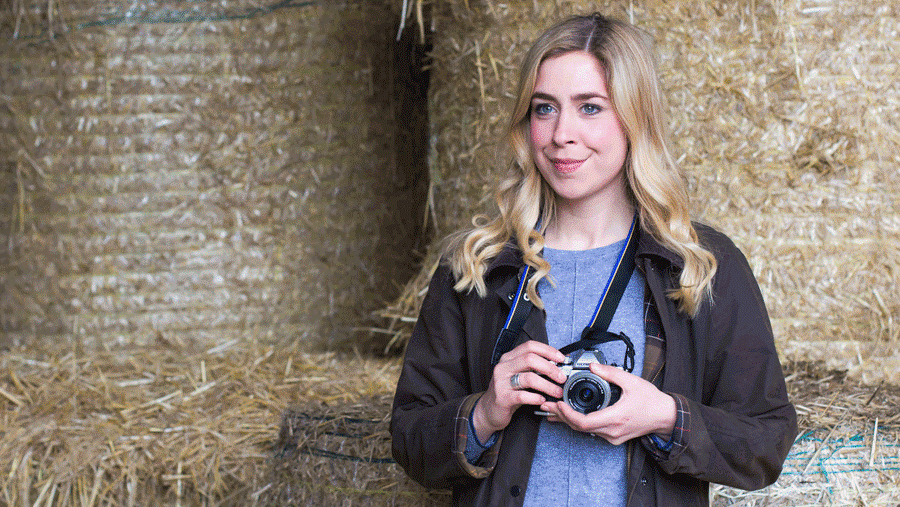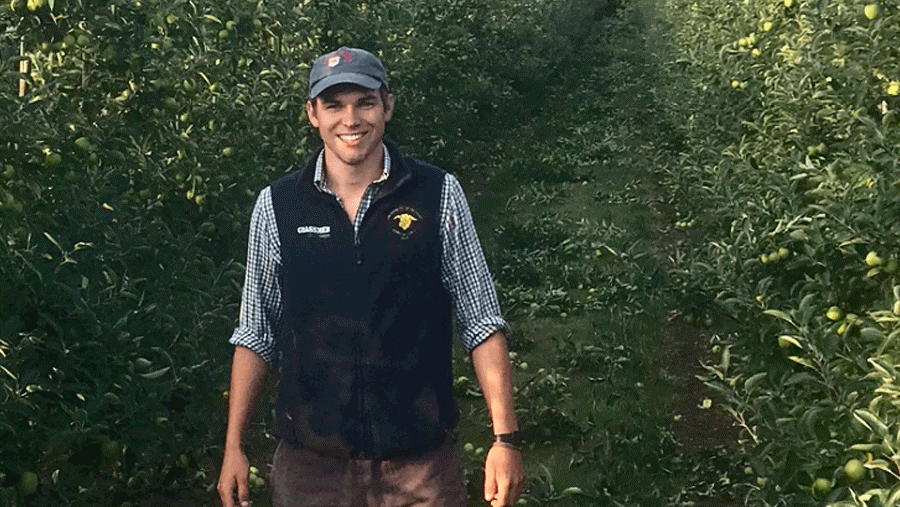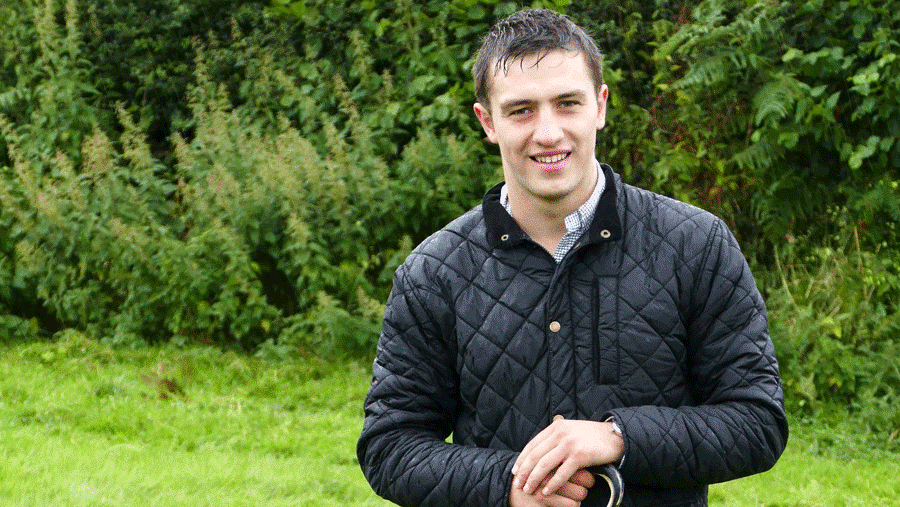Advertiser content
Tesco Future Farmer Foundation: Open for 2019-20 applications
Applications for the 2019 – 20 Future Farmer Foundation are now open – start your application today and check out our Facebook page for all the latest news and information.
Who we are
The Tesco Future Farmer Foundation is a 12 month course starting from January which is fully funded by Tesco. Our aim is to offer opportunities and advice to young people looking to make a start in the agriculture sector.
Each year provide 50 young farmers with the toolkit they need in order to succeed in a challenging and dynamic industry. Our sixth intake are now well under way which means 300 young farmers from around the UK and Ireland will have attended the programme to develop their career.
The programme has been shaped from the very start by asking young farmers what they need to build their careers. They told us they wanted to build their business skills, to learn more about today’s fast-moving supply chains and to find out from industry experts what they need to know to be successful.
The programme meets these needs and delivers a whole lot more.
Create contacts
A key piece of feedback we receive every year is that the programme is excellent at providing access to industry contacts.
Spending valuable time with like-minded young farmers from different agricultural sectors who face many of the same challenges and opportunities as you which is an invaluable source of knowledge exchange.
You will also meet and learn from top industry professionals across banking, law, consultancy, accountancy, as well as senior executives in food businesses.
What’s on offer
A remarkably diverse range of activities are included to develop personal skills and industry knowledge.
Including;
- 26 supply chain visits across a variety of farming sectors
- 5 workshops which address the challenges for young people in agriculture; succession planning, finance, obtaining land, leadership training, PR and marketing both yourselves and your business. The workshops are delivered by both internal speakers at Tesco HQ and external industry experts. NatWest are responsible for delivering the finance aspect of the workshop and have designed a bespoke package for the Future Farmer group in order for them to gain a better understanding of farm business accounts
- An alumni event. 2018 was the first year we held an alumni event for all past and present farmers. In 2019 we are expecting it to be even bigger and better
- Peer and industry mentoring opportunity – Each Future Farmer will be matched with an individual peer mentor as well as the opportunity to be matched with a mentor within the agri-food industry who will help to identify key knowledge gaps, to identify career goals, encourage personal development and build confidence
- Each intake has the opportunity to access a £10,000 training fund in order to upskill and develop themselves and their business
Laura Hodgkins

What is your background and what made you decide on farming as a career?
I’m not from a farming background by any stretch. I came into farming 18 months ago after working in marketing and advertising.
My husband and I took on a long-term farm business tenancy in 2016 and that prompted my transition into farming.
We now run a 2,000-strong extensive flock of New Zealand Romney sheep on the South Downs in Sussex.
What qualifications do you have?
GCSEs, A-Levels, a Fine Art Foundation, Graphic Design BA Hons Degree – all very useful for the farming world!
What farming experience do you have?
During the past six years I had occasionally helped during lambing times on my husband’s family farm
But its only been in the last 18 months working full time on our own farm that I have really gained any real sense of what farming entails.
During that time I have built up experience with the sheep and the calves that we rear on a contract basis, as well as some basic tractor/machinery skills.
What is your current job?
Shepherd and co-manager on our own tenanted farm
What attracted you to the Future Farmer Foundation?
Having not been part of Young Farmers, or having done an agriculture degree, I was really after a course that would give me a baseline knowledge of all of the sectors within farming – I also needed a course that I could carry on working alongside.
The TFFF was great, as it was not only designed to give an insight into all areas of farming and the supply chain, it was also an opportunity to make valuable contacts within the industry and to meet other young like-minded farmers.
What were your expectations and have they been met?
I was slightly nervous going on to the course, as it was all a bit out of my comfort zone having not come from a farming background.
But after the first workshop I was instantly relived to find such a rich mix of different farmers from all different backgrounds.
The course has exceeded my expectations in many ways, the supply chain visits have been invaluable for me this year and have really helped me in building my knowledge in all sectors of the farming industry.
What is the one stand-out memory/experience from your time on the scheme?
For me it was a couple of the supply chain visits. Visiting a large-scale vegetable/salad producer was mind-blowing – I just had no idea how the system worked and it was amazing to see it all in action.
The same goes for the Dairy Centre of Excellence visit; believe it or not I’d never been to a dairy farm, so it was an eye-opener for me.
How have you benefited?
The scheme has really helped me build my confidence within my business at home and made me motivated to bring ideas to the table that perhaps I would have been too unsure of to do so before.
It has also given me a great range of contacts within the industry as well as a soundboard of individuals in my fellow TFFFs.
Where do you see yourself in five years?
Hopefully with a thriving sheep enterprise that has survived Brexit, with perhaps a side diversification project that is bringing its own money in.
Rob Wickham
What is your background, and what made you decide on farming as a career?
I grew up on the family farm, with my father growing fruit and hops. What really spurred me into choosing farming as a career was the way that no two days, seasons or years are the same and therefore it is rarely stagnant, with fresh challenges presenting themselves regularly.
What qualifications do you have?
GCSEs, A-Levels, BSc Agriculture with Industrial Training (Reading University).
What farming experience do you have?
Plenty of summers spent doing arable harvest on neighbouring farms. Blackcurrant harvest at home since I was a youngster.
I have spent time in Research and Development of soft fruit, working for Haygrove Ltd in Herefordshire.
What is your current job?
Assistant Farm Manager at Adrian Scripps Ltd. We grow apples, pears and blackcurrants.
What attracted you to the Future Farmer Foundation?
I liked the idea of being surrounded by like-minded, driven individuals who are on a similar journey to me, perhaps in need of some direction or guidance in order to take the next step in their career or just to gain confidence in what they’re doing.
What were your expectations and have they been met?
I expected to potentially learn a little bit about business planning and personal development.
What I have ended up gaining from the foundation is a great deal of motivation and confidence to point my career in the direction I want it to go rather than just bumble along.
I have also gained a large group of friends within the industry who are great for bouncing ideas around with.
What is the one stand-out memory/experience from your time on the scheme?
One thing I enjoyed was a supply chain visit to Arla where we were tasked with pitching a new yoghurt product to the mock Tesco buying panel.
This was great to learn the powers of negotiation and get a feel for how the supermarkets and their suppliers work together.
Negotiation skills are something that was focused on in workshop three, with an excellent session.
How have you benefited?
I feel I have more direction and confidence as a result of the scheme. I have been trying to transfer as much as possible that I have learned during the scheme on to the farm.
I have also benefited in the form of a fantastic industry mentor who is on the end of the phone should I need to discuss anything with him, be it technical growing questions or more broadly about the fresh produce industry.
Where do you see yourself in five years?
At the helm of a successful fruit-growing business.
Gwesyn Davies
What is your background, and what made you decide on farming as a career?
Having been brought up on the family sheep and beef farm in mid-Wales. I have always been heavily involved on the farm from a young age.
Passionate about livestock, I began my own sheep flock from the age of 13.
On finishing school education it was a natural next step for me to study agriculture at Harper Adams University before returning home to the family farm.
What qualifications do you have?
BSc (Hons) Agriculture Harper Adams.
(A levels in Geography, History and Economics).
What farming experience do you have?
From the age of 18 I went into partnership with my father, over the past few years I have increased the sheep flock to 600 Abe field ewes and very recently finished with the suckler herd and introduced a calf-rearing enterprise.
In addition to my sheep and beef experience at home, I have worked on several farms to broaden my experiences on a variety of production systems, this was important in opening my eyes to new approaches for the home farm.
During my placement year at Harper Adams University, I spent 12 months within the poultry sector and felt that there is much to gain in adopting similar forward thinking approaches to genetics and efficiency that this sector has mastered.
What is your current job?
I am developing the home farm. I’m currently farming the business on my own after a period of change within the family.
Having the responsibility for the outcomes of all decisions, both good and bad, is a sobering thought!
What attracted you to the Future Farmer Foundation?
I was recommended to join the Foundation by friends who have previously been on it.
Seeing benefits that they have had from their year with the Foundation, and the wider benefits to them as an individual and to their business, motivated to me to join.
What were your expectations and have they been met?
I approached the Foundation with an open mind. My greatest expectation was to meet new like-minded farmers.
The foundation provides a variety of industry-leading speakers as well as the opportunity for supply chain visits into a wide range of sectors within the industry, such as looking at free-range eggs and egg-packing plants.
What is the one stand-out memory/experience from your time on the scheme?
Meeting the other future farmers for the first time and being overwhelmed by the calibre of young farmers within the Foundation.
How have you benefited?
Being part of the Foundation has given me the confidence to implement significant changes at home such as the introduction of the 165 calf rearing unit.
Utilising the network of contacts through the Foundation, I am working within an integrated supply chain for a major calf-rearing company on a set price per kilo, which was something that the bank managers guest speakers at the workshops had said is a favourable move given the current market.
The Foundation workshops develop your wider understanding of market influences, both in the UK and globally. Although the agricultural industry is very volatile, this understanding makes you aware of any risk when looking to invest.
In addition, I have joined the Tesco Cost of Production contract for my lambs. By being a part of this producer group, I am able to benchmark my performance against other suppliers, and ultimately work towards reducing my lamb cost of production.
Where do you see yourself in five years?
I see myself developing my sheep and calf enterprises, focusing on improving the efficiency to help make my business more financially sustainable within an uncertain future.
Provided by
The programme which is fully funded by Tesco was set up in 2014 and aims to support and inspire young people in UK and Irish farming.
It is available to people aged 20-35 years from all farming sectors, including new entrants and next generation farmers, who look to develop a successful future in agriculture, aquaculture and horticulture.
To date 400 young farmers have participated in the programme with 50 places available on the 12 month programme which starts in January each year.
Around 33% have been industry new entrants with the remainder next generation farmers. The programme focuses on core elements including; Business planning, obtaining land, leadership skills, personal development and understanding the supply chain.


